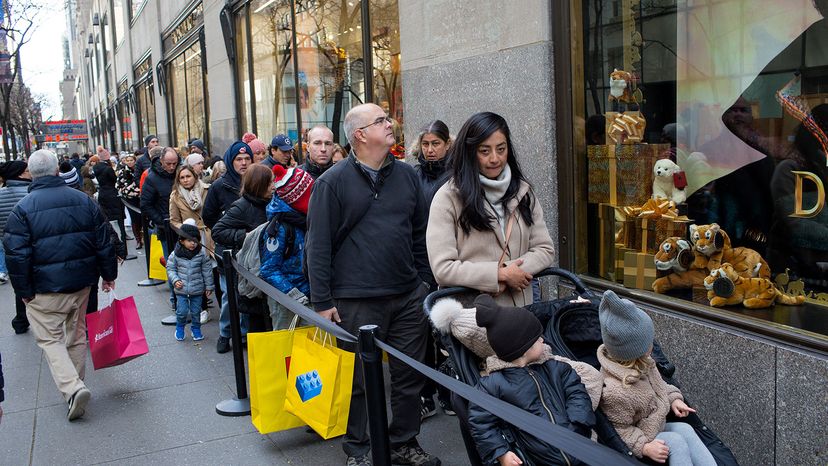
As soon as scores of Americans digest their Thanksgiving turkey, they turn their thinking to holiday shopping. They snatch up newspapers bursting at the seams with circulars heralding Black Friday sales or comb through ads online. "Black Friday" refers to the day after Thanksgiving that marks the traditional kickoff to the holiday shopping season. The "black" in Black Friday symbolizes stores turning a profit.
The term didn't catch on nationally until the 1980s. Before that, Black Friday referred to the hordes of shoppers and tourists in Philadelphia who came into town for the Army-Navy football game that was played on the Saturday after Thanksgiving. Police called the day before the game "Black Friday" because of the crowds, traffic and shoplifters, reported History.com. But later, the term became associated with shopping, which has been part of the Thanksgiving holidays ever since President Franklin Roosevelt moved the date of Thanksgiving a week earlier to extend the Christmas shopping season in 1939.
Advertisement
These days, most stores don't even wait for Friday morning. They open their doors Thanksgiving evening or at midnight to give deal-hungry shoppers an early start for the shelves. Or else they offer "Black Friday" deals online that start way before the big day and go on a week or more after. Violent crowds on Black Friday caused stores to spread out the shopping deals to lessen the mayhem. And the COVID-19 pandemic of 2020 has further reduced the appetite for in-person shopping and increased the demand for virtual buying. Predictions for 2020 are that mall traffic will be 22 to 25 percent lower than 2019 for the six weeks of the holiday season.
But setting aside the out-of-the ordinary year that is 2020, is Black Friday typically the biggest shopping day of the year?
Not at all. Customer volume may go through the roof, but sales don't follow in suit. Surveys have shown that despite the steady streams of people flowing into stores on Black Friday, not all of them drive home with trunks full of holiday presents. For instance, one 2005 study conducted by researchers at Indiana University found a consistently low rate of purchase among Black Friday shoppers, even lower than on a pre-holiday weekend. Long checkout lines, crowds and out-of-stock merchandise contributed to people leaving empty-handed.
Looking at data from 2019, there were 84.9 million shoppers in the U.S. on Black Friday, according to the National Retail Federation (NRF). However, the real business was done on Super Saturday (the Saturday closest to Christmas). A record $34.4 billion was spent on Dec. 21, 2019, CNN reported, far more than the $7.4 billion spent on Black Friday. The NRF forecasted 147.8 million U.S. customers for Super Saturday, far outpacing the numbers for Black Friday.
Not only has Black Friday been eclipsed by Super Saturday, it might also be overshadowed by Cyber Monday. In 2019, Cyber Monday sales were $9.4 billion in the U.S., versus $7.4 billion for Black Friday, reported CNET. Interestingly, for the first time, Black Friday topped Cyber Monday as the busiest day online in 2019, reported the NRF. (Note, "busiest" day may not be the most lucrative. It means that lots of people are out there shopping or just browsing, not necessarily buying. And more of them might be doing it online than ever before.)
It's not surprising that Super Saturday would be the most lucrative day of the holiday season. People often procrastinate, or maybe money is tight, so they hold off buying gifts until the last minute. Still, a certain segment of the population likes the Black Friday ritual of getting together with friends and relatives, braving the cold and early hours and checking out the deals — even if they end up not buying very much.
Advertisement
